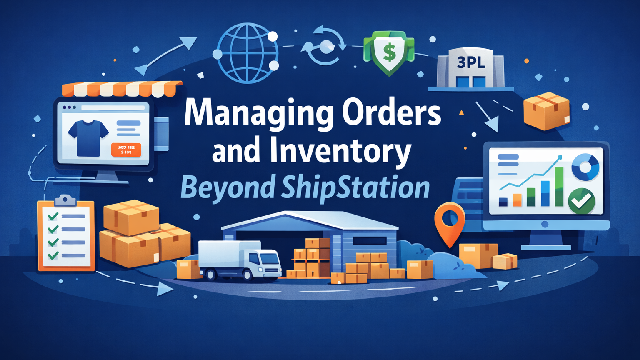Mastering Lead Qualification: Identifying and Nurturing Quality Leads
Targeting the right leads is a make or break for your sales efforts. Finding these leads requires using a technique called lead qualification.
In this article, we’ll break down some key points you need to know when it comes to mastering lead qualification. Specifically, we’ll discuss what lead qualification is, how to identify quality leads, and how to nurture your leads.
Are you ready to fill your sales pipeline with high-quality potential customers?
Let’s dive in.
What is lead qualification?
The lead qualification process is a part of the sales process that helps to identify specific customers that you could serve. The difference between a lead and an ideal client is that a lead is a person or business who’s interested in your product or service, whereas your ideal client is more hypothetical.
The purpose of lead qualification is to ensure that your leads become prospects or potential buyers. By qualifying your leads, you can ensure that you’re not wasting sales resources by trying to sell to someone who’s unlikely to buy from you (like an economic buyer). As the Flow State Sales expert says, the sales team uses the MEDDIC sales process to sell what customers like. A proper MEDDIC sales team training can help your team leverage this sales strategy.
4 Ways to identify quality leads
Now that you’re a bit more familiar with lead qualification, let’s take a look at a few ways to help your marketing teams identify quality leads.
1. Create a detailed ideal customer profile
The foundation of lead qualification is ensuring that the individual or business you’re targeting is truly interested in your business. However, before you get there, you’ve got to do some groundwork to establish who your business can serve and why.
Some things to map out in your ideal customer profile include demographics, income, and pain points. Once you have fleshed out the details and created this profile, it’ll be easier to qualify leads against that criteria and understand their decision criteria. Oh, and you can also create buyer personas to further help learn their current situation and decision-making process. As an eCommerce store owner, this can guide you in building a fulfillment center tailored to efficiently meet their needs and ensure timely delivery, enhancing customer satisfaction.
2. Leverage technology
Lead qualification requires a systematic approach to identifying and prioritizing quality leads, which is particularly vital for those in BDR manager jobs. One valuable tool in this process is lead scoring software. With its sophisticated algorithms and data analysis capabilities, these tools help businesses evaluate and assign scores to leads based on various criteria such as demographics, behavior, and engagement. For instance, Integrating a recruitment CRM system into your workflow can further enhance your lead qualification process by organizing and tracking interactions with potential candidates, ensuring a streamlined approach.
With the help of these AI sales tools, sales teams can streamline their efforts, focusing less time and effort on unqualified leads and more time on leads with the highest potential for conversion. Additionally, integrating advanced sales performance management software into the workflow can provide real-time insights and analytics, empowering sales teams to make data-driven decisions and further optimize their strategies for maximum efficiency and success. All in all, for scoring a lead, you need a comprehensive lead management software that can help you with all aspects of lead qualification.
3. Identify the decision maker
Another important part of the lead qualification is ensuring that your sales reps are talking to a decision-maker. Even if you have a solid idea of who your offer is for, they may not be the one who is deciding to purchase.
There are a few examples of this. For example, in the retail or B2C context, if you’re offering a product or service for children, the parent or caregiver is the decision maker, even though the offer is for children. In a B2B context, your offer may be geared towards a specific department, but you may need to work with a higher-up to close the deal.
Note that for B2C, the sales cycle is much shorter than for B2B. So you’ll need to approach them differently. More on that later. But the ideal remains the same, that you want to identify the sales-qualified leads and pass them through the sales funnel without much friction. Pipeline management CRM software allows sales reps to track the status of prospective customers, identify possibilities for follow-ups, and prioritize leads based on their stage in the pipeline. Integrating this CRM system with data integration tools allows for a seamless flow of information, ensuring that sales teams have access to the most accurate and up-to-date data on each lead.
The less friction. The easier the purchasing decision for the decision maker. The result? Higher conversion rates and a better bottom line.
4. Leverage email opt-ins
Encourage visitors to your website or social media platforms to subscribe to your email newsletter or or opt-in for special offers, thereby increasing social media visibility. This allows you to build a database of quality leads who have already shown a genuine interest in your products or services and willingly provide their contact information to receive updates and promotions from you.
Giving special offers is an especially beneficial tactic for small local businesses that cater to recurring customers in their area and have to forge meaningful connections with local communities to keep their flow of quality leads.
One great example is Norfolk Florist, which uses this strategy to increase the number of online orders from its flower shop. They include an email capture in the footer of their website.
They regularly send out emails with special offers to their subscribers. These could target holidays such as the Fourth of July, Mother’s Day, and Valentine’s Day or remind them that they might need a bouquet for various occasions, such as a wedding, graduation, or “just because.”
By doing so, they stay top of mind to ensure that the local population around Virginia Beach opts for flower delivery from this local florist.
How to nurture qualified leads
The qualification framework is only one part of the sales puzzle. Once you find quality leads, it’s important to focus on improving lead nurturing to turn them into prospects and, eventually, customers.
With that said, here are a few ways to nurture qualified leads.
1. Drip campaigns
Drips email campaigns are a type of email marketing that sends automated messages on a set schedule. Typically, an action, like a sign-up or email opt-in, triggers these.
For example, if you have rosaries for sale, as House of Joppa does, a drip campaign could send emails daily or every other day for a week or so with CTAs, to increase sales or generate brand awareness. Then taper off to one email per month just to stay in contact.
An effective drip campaign is a strategic part of your marketing efforts.
Not only should it continue exposure to your brand, but it should create consistent opportunities for sign-ups or purchases. You can drive your intended conversion with the strategic use of CTAs. The name of the game is to simplify the decision process (regardless of company size).
2. Content marketing
Content marketing is a more subtle way to reach your audience. It’s less salesy, and it aims to provide value with the goal of building trust and rapport with your audience.
Content marketing as a technique is a pretty general umbrella that consists of many different techniques, so to nurture leads, you’ll need to use a method that allows you to put the content in front of viewers who have expressed interest in your brand, such as social media followers.
Aside from social media, webinars, SMS, and email are other great opportunities to nurture leads.
3. Personal sales touches
Depending on the nature of your business, you may need to incorporate a more direct sales touch for some customers. This is particularly important with high-ticket items or services.
The main difference between a personal sales touch compared to the other methods we’ve mentioned is that a personal sales touch involves a one-on-one interaction rather than an automated one. Some examples are guided demos or sales presentations.
4. Provide customized solutions
Providing customized solutions can be a huge advantage, especially for software or website development projects. Demonstrate a commitment to solving customers' unique problems by understanding their specific needs and providing customized solutions.
For example, if your prospect needs a complex web application, show them how your team can design, develop, and create a powerful solution that fully meets their business goals. Providing case studies or examples of past projects can also help attract potential clients by demonstrating your experience and success with similar projects.
To do this, consider hiring a remote work team. When you hire a dedicated remote development team, you can be sure that your project will be led by experienced professionals who understand your business goals and deliver efficient and high-quality results. This approach not only provides flexibility, but also leverages a global talent pool to bring the best developers to your project.
Final thoughts
Mastering lead qualification is very important if you want to hit your sales goals. It allows you to get more intentional with who you target, making it easier to identify who your business could serve the best.
Equipped with the information in this guide, you’ll be on track to becoming a lead qualification master in no time!








